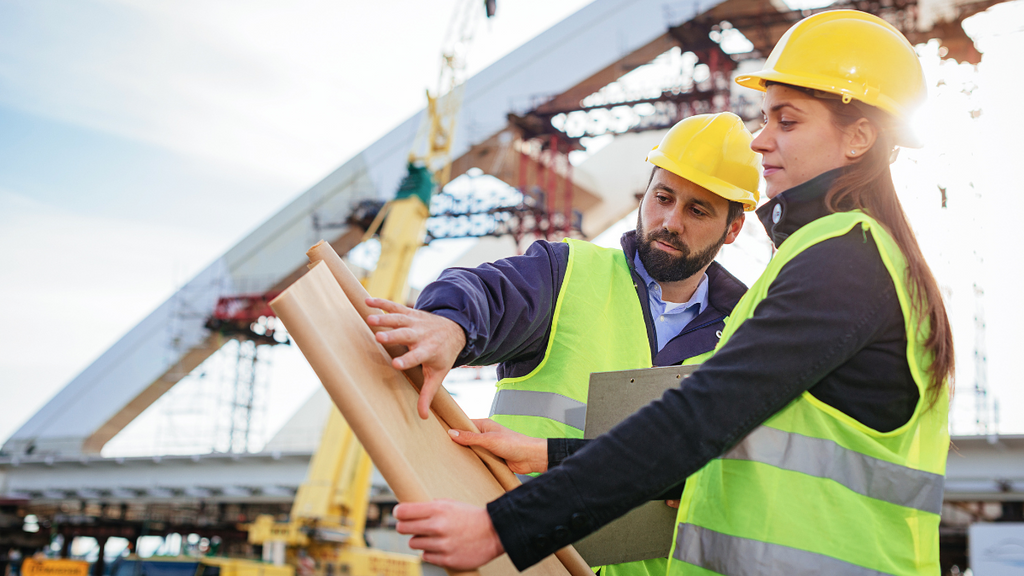More About Geotheta
More About Geotheta
Blog Article
Geotheta Can Be Fun For Anyone
Table of Contents8 Simple Techniques For GeothetaTop Guidelines Of GeothetaLittle Known Questions About Geotheta.The Definitive Guide to GeothetaSome Of Geotheta

They conduct website investigations, gather samples, do research laboratory tests, and examine information to evaluate the suitability of the ground for construction tasks - Geotechnical Engineers. Based on their searchings for, geotechnical engineers give suggestions for structure layout, incline stability, keeping structures, and reduction of geotechnical hazards. They work together with various other professionals, such as architects, architectural designers, and building and construction groups, to make certain that geotechnical factors to consider are integrated right into the overall task style and execution
By evaluating the behavior and properties of dirt and rock, they can identify prospective geotechnical threats such as landslides, dirt negotiation, or slope instability. Their experience aids avoid failings or accidents that might endanger lives and residential or commercial property. Here are some in-depth responsibilities and responsibilities of a geotechnical engineer: Site Examination: Geotechnical designers conduct website examinations to collect information on subsurface conditions.
They translate the information to recognize the homes and actions of the soil and rock, including their strength, leaks in the structure, compaction characteristics, and groundwater problems. Geotechnical Evaluation and Style: Geotechnical designers analyze the information collected during website examinations to evaluate the security and suitability of the website for building projects. They carry out geotechnical calculations and modeling to examine elements such as birthing capability, settlement, slope security, side earth pressures, and groundwater circulation.
The Greatest Guide To Geotheta
Structure Layout: Geotechnical designers play a crucial duty in developing foundations that can securely sustain the designated framework. They analyze the soil conditions and tons requirements to establish the ideal structure type, such as superficial foundations (e.g., grounds), deep structures (e.g (https://geotheta.webflow.io/)., stacks), or specialized strategies like dirt improvement. They take into consideration aspects such as settlement restrictions, bearing capability, and soil-structure communication to develop optimum structure layouts
They examine building plans, display site tasks, and carry out field assessments to confirm that the style referrals are followed. If unpredicted geotechnical issues develop, they analyze the circumstance and offer suggestions for removal or changes to the layout. Threat Analysis and Reduction: Geotechnical designers evaluate geotechnical dangers and risks related to the job website, such as landslides, liquefaction, or soil erosion.

Collaboration and Interaction: Geotechnical engineers work closely with various other specialists associated with a task, such as architects, architectural designers, and construction groups. Effective communication and partnership are necessary to incorporate geotechnical considerations into the overall job style and construction procedure. Geotechnical engineers provide technological expertise, answer questions, and guarantee that geotechnical demands are met.
The Greatest Guide To Geotheta
Below are some kinds of geotechnical designers: Foundation Designer: Structure designers concentrate on creating and analyzing structures for structures. They analyze the dirt conditions, load needs, and website attributes to identify one of the most ideal structure kind and design, such as shallow foundations, deep foundations, or specialized strategies like pile foundations.
They evaluate the factors influencing slope stability, such as dirt residential or commercial properties, groundwater problems, and slope geometry, and develop strategies to avoid slope failures and reduce threats. Earthquake Designer: Earthquake designers specialize in analyzing and developing frameworks to withstand seismic pressures. They evaluate the seismic risk of a website, review soil liquefaction possibility, and develop seismic design criteria to ensure the safety and strength of frameworks throughout earthquakes.
They do field testing, collect examples, and analyze the accumulated data to identify the soil properties, geologic developments, and groundwater conditions at a website. Geotechnical Instrumentation Engineer: Geotechnical instrumentation engineers focus on monitoring and determining the actions of soil, rock, and frameworks. They set up and preserve instrumentation systems that monitor aspects such as dirt negotiation, groundwater levels, incline motions, and structural variations to evaluate performance and provide very early warnings of prospective problems.
What Does Geotheta Mean?
They carry out tests such as triaxial tests, consolidation examinations, straight shear examinations, and leaks in the structure examinations to collect information for geotechnical evaluation and layout. Geosynthetics Designer: Geosynthetics engineers focus on the style and application of geosynthetic materials, such as geotextiles, geogrids, and geomembranes. They use these products to boost soil stability, reinforce inclines, provide drain solutions, and control disintegration.
They have a tendency to be investigative people, which means they're intellectual, introspective, and analytical. They are curious, systematic, sensible, analytical, and rational. Some of them that site are additionally social, implying they're kind, generous, participating, patient, caring, valuable, empathetic, sensible, and friendly. Does this seem like you? Take our free career test to find out if geotechnical engineer is among your top profession suits.
In the workplace setting, geotechnical designers use specialized software tools to carry out calculations, produce layouts, and examine data. They prepare reports, evaluation project specifications, interact with clients and staff member, and coordinate project activities. The office setting provides a favorable atmosphere for research, evaluation, and collaboration with various other experts involved in the task.
Not known Details About Geotheta
They frequently visit task sites to perform site examinations, evaluate geotechnical conditions, and collect data for evaluation. These gos to involve taking a trip to various locations, sometimes in remote or challenging terrains. Geotechnical engineers may execute dirt sampling, conduct examinations, and screen building and construction activities to guarantee that the geotechnical elements of the project are being carried out appropriately.
Geotechnical designers likewise work in specialized geotechnical labs. Geotechnical laboratory engineers function thoroughly in these atmospheres, dealing with screening equipment, running tools, and tape-recording information.
Report this page